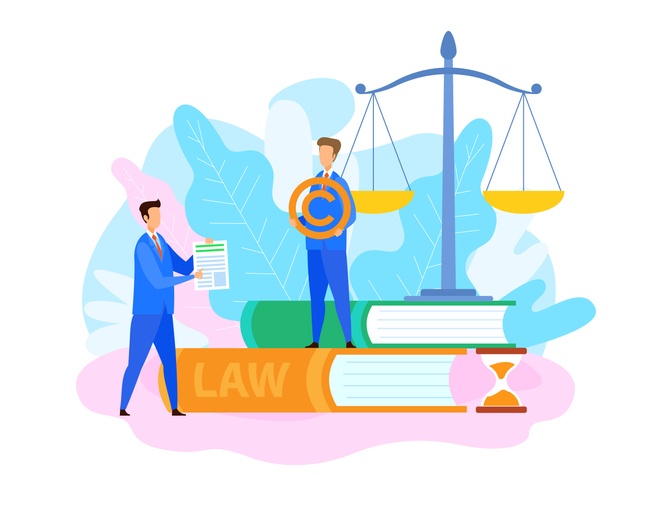Intellectual Property: New Concerns for 2022

The digital revolution increased employment flexibility, and even the COVID-19 pandemic has heightened how critical it is for businesses and individual creators to protect their intellectual property. Not so long ago, no one would have ever suspected an intellectual property component involved with getting a car to take you to the airport. Now rideshare giants such as Uber and Lyft dominate the field without purchasing a car or opening a storefront. Likewise, an artist or musician operating out of their apartment can create something that goes viral and builds worldwide demand in just a few weeks.
Of course, these great opportunities are tempered by the risk that exists when your most important asset can instantly be transmitted around the world. A disgruntled former employee or an online copycat could reap the benefits after you invested so much money and hard work in creating something of value. You might realize how important intellectual property is and likely are familiar with the terms used to describe different types of inventions and ideas that can be safeguarded. However, many people are unsure which type of IP protection best serves their needs.
Most protectable intellectual property falls into one of the following categories:
- Patents — Individual and business inventors can seek a patent if they have created a new product or process and wish to establish the exclusive right to capitalize financially on what they’ve built. There are three types of patents: utility, design, and plant. Most applications are for utility patents, which cover new, useful machines, systems, and articles of manufacture. Significant improvements can be patented as well.
- Copyrights — Large publishing houses and starving artists alike must obtain a copyright if they want to prevent others from stealing their work. You can secure a copyright for a written work, film, theatrical performance, musical composition, piece of visual art, or photograph. This means you have the exclusive right to publish, sell, display or license the content at issue. One application to the U.S. Copyright office can cover as many as ten individual submissions. Though the law no longer requires the © symbol to establish copyright protection, many still use it.
- Trademarks — Even before you can read the sign or see the building from your car, you know that the golden arches mean that a McDonald’s is ahead. Whether it is a slogan, a symbol, or a unique design, there are specific words and images that we automatically associate with certain brands. However, without a registered trademark, a hamburger place across the street could also use the golden arches to deceive potential customers. Companies applying for trademarks can use a ™ superscript and then switch to the ® superscript once registered.
- Service marks — Like trademarks, service marks are words, phrases, logos, or other identifiers used to indicate a specific business. The difference is that while the sellers of products use trademarks, a provider of services can register a service mark. So while Nabsico uses a red triangle with its name for a trademark, FedEx uses its name in blue and orange letters as a service mark. Companies seeking a service mark can use an “SM” superscript until the mark is registered. Upon registration, the standard ® superscript is proper.
- Trade secrets — There is a wide range of intellectual property valuable to businesses but does not fall into one of the formal categories that can be registered. Trade secrets might be recipes, customer lists, or any other confidential information with commercial value. To qualify as a trade secret, the IP must be limited to a small group of employees, and the company has to take steps to prevent the dissemination of the information.
No matter what type of intellectual property concern you have, the legal standards are complex and small distinctions could make a significant difference. Waiting to assert your rights could be very costly. Consulting with an experienced intellectual property attorney can help you understand the best way to protect yourself before someone infringes on what you’ve developed.









